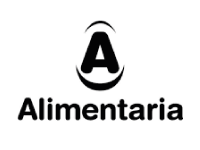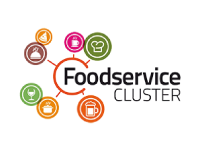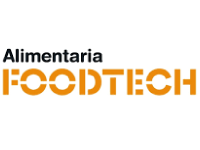“Barcelona provides us something that is important, agility, because we have incoming talent every year with new ideas.”
Gaston Besanson, VP and Global Head of Data Science at PepsiCo
The Foodservice industry in Catalonia creates employment for 116,000 people, with 80% working for established businesses that have been in operation for over ten years.
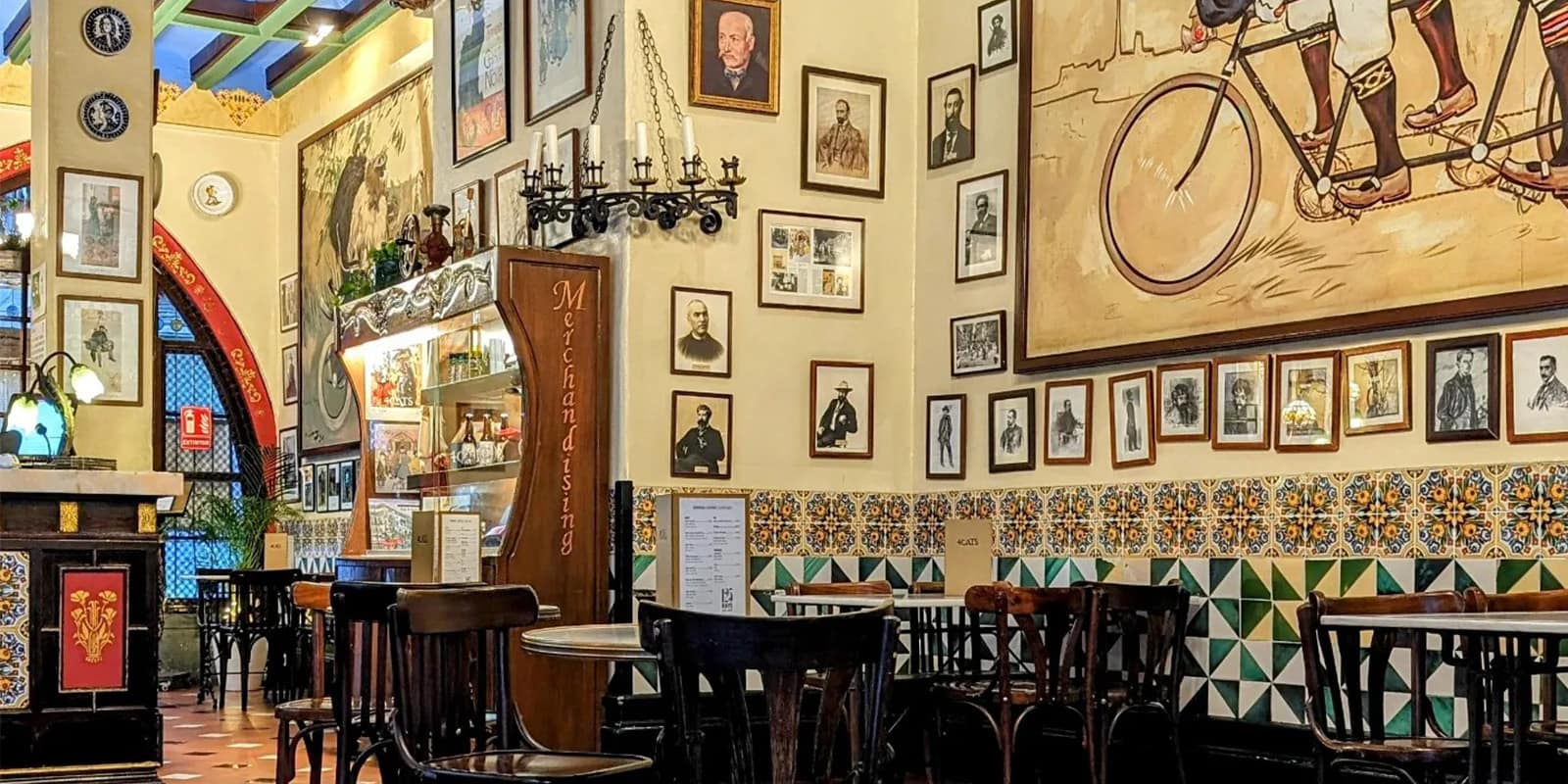
The foodservice sector in Catalonia is made up of 5,748 businesses that generate an annual turnover of €24,017 million, accounting for 8.9% of the region's GDP. These are the main findings of the first sectoral study conducted by ACCIÓ-Catalonia Trade & Investment - the agency for business competitiveness belonging to the Ministry of Business and Labour - with the participation of the Catalonia Foodservice Cluster.
The foodservice industry comprises businesses and organizations responsible for preparing, distributing, and selling food and beverages intended for immediate out-of-home consumption. According to the report "The Foodservice Industry in Catalonia," there are 116,524 people employed daily in this sector, with 80% of them working in companies that have been operating for more than ten years.
Of the total number of foodservice businesses, more than half (51%) are aimed at end customers, representing commercial sales of ready-to-consume food and beverages, either in restaurants or in educational institutions, corporate facilities, or healthcare centers. These companies employ the majority of workers (69%) and account for 23% of total turnover.
26% of foodservice companies work in product distribution, 19% are involved in the processing industry for foods and beverages, and only 4% operate in agricultural production of raw materials.
According to ACCIÓ-Catalonia Trade & Investment, the companies that account for the majority of turnover are food and beverage processing companies with 49% of the total (€11,735 million) with 22% of the foodservice sector's workforce. Companies focused on distribution generate 24% of overall revenue (€5,743 million), employing 8% of the entire workforce. Finally, companies dedicated to agriculture, livestock farming, and fishing account for 4% of turnover (€1,088 million) and employ 3% of workers.
“Barcelona provides us something that is important, agility, because we have incoming talent every year with new ideas.”
Gaston Besanson, VP and Global Head of Data Science at PepsiCo


5,748 companies

€24,017M in turnover

116,524 employees
The foodservice sector is well-established in Catalonia and currently undergoing growth. In fact, according to ACCIÓ-Catalonia Trade & Investment's calculations, Catalonia's turnover accounts for 28.5% of the entire Spanish state (€87 billion). Additionally, 95% of companies operating in this sector in Catalonia are Catalan, with seven out of ten having been in business for more than ten years and 91% being small-to-medium enterprises (SMEs).
Moreover, according to data collected in the ACCIÓ-Catalonia Trade & Investment report, over the past five years (2019-2023), Catalonia stood out as the fifth region in Europe and first in Spain to attract the most foreign investment projects related to food production (41) and also in terms of jobs created. Furthermore, 32% of foodservice sector companies are regular exporters abroad.
The study also shows that Catalonia is the Spanish region with the highest number of students enrolled in university or master's degree programs related to foodservice, with nearly 1,000, almost double the number of the region behind them and accounting for 33% of all students studying higher education nationwide.
The food and beverage industry is constantly evolving, adapting to the changing realities of nutrition and environmental factors in Catalonia, Spain, and around the world. In the report, several trends are identified in various areas. The first trend is a focus on healthier and more sustainable eating habits, with an emphasis on plant-based (vegetable) products or gluten-free options, as well as a reduction in alcohol consumption during meals. Additionally, there is a commitment to reducing water usage in the industrial production, distribution, and consumption of food processes.
The analysis of trends in the foodservice sector places more emphasis on food consumption experiences. This includes the growth of themed restaurants, quality fast-food establishments, and spaces where eating and drinking are part of an offer that goes beyond simply consuming food.
Technology and digitalization play an increasingly important role in foodservice. One of the most recurrent initiatives is using social networks to share and promote menu options from establishments, launch new dish creation proposals online, loyalty programs for customers, and collect data on consumer preferences. At the same time, it highlights the growth of automation in order management and the emergence of robots in bars and restaurants to serve diners.
The study identifies several business opportunities for Catalonia-based companies in the sector based on Catalonia's assets and foodservice market trends. In terms of market and consumption, opening new niches around high-protein products and plant-based options opens up exploring new business models to develop these foods. In this regard, public-private alliances to accelerate the capture and adaptation of this new market segment can facilitate the expansion of businesses considering it.
As regards health, sustainability, and adapting business models to climate change, the report considers it crucial for companies to offer healthy and balanced food and beverages. The ability to collaborate between local producers and companies can help provide consumers with fresh, seasonal, and environmentally friendly foods. To achieve this, logistics and industrial systems must be adapted to make them more efficient, reduce environmental impact, and minimize waste and unused product volume.
In this regard, using sector-adapted technology is crucial for developing sustainable and healthy products. The study emphasizes the ability to detect trends and consumption preferences through social networks or databases to create new dishes and products that align with these trends. One of the tools used to increase productivity should be artificial intelligence.
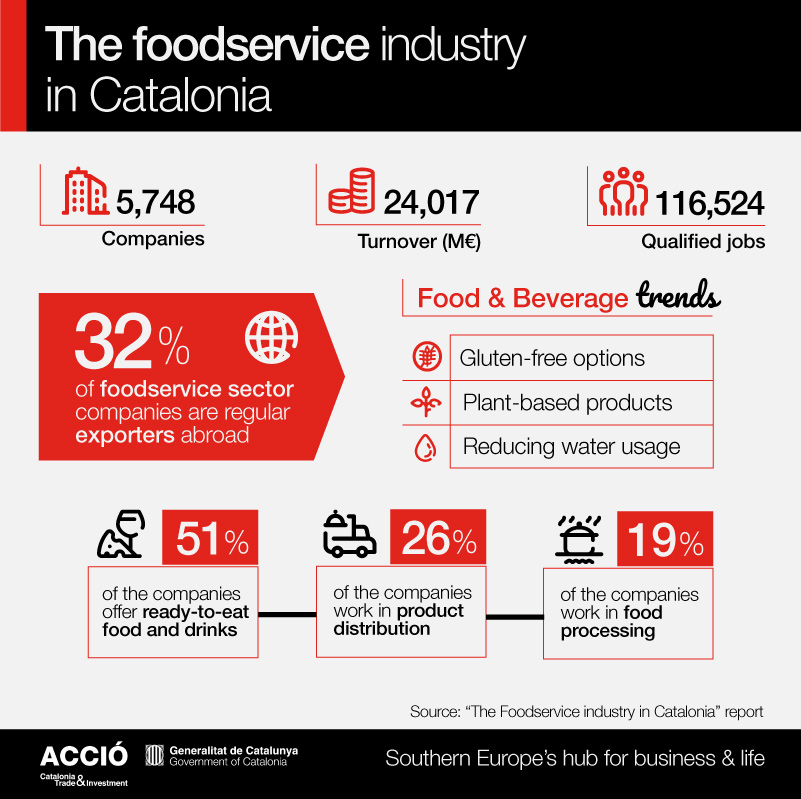

Access our report on the Foodservice sector in Catalonia and see the latest trends in the industry.
Take a look below to find out about the main institutions and events in Barcelona-Catalonia related to the Foodservice sector.
